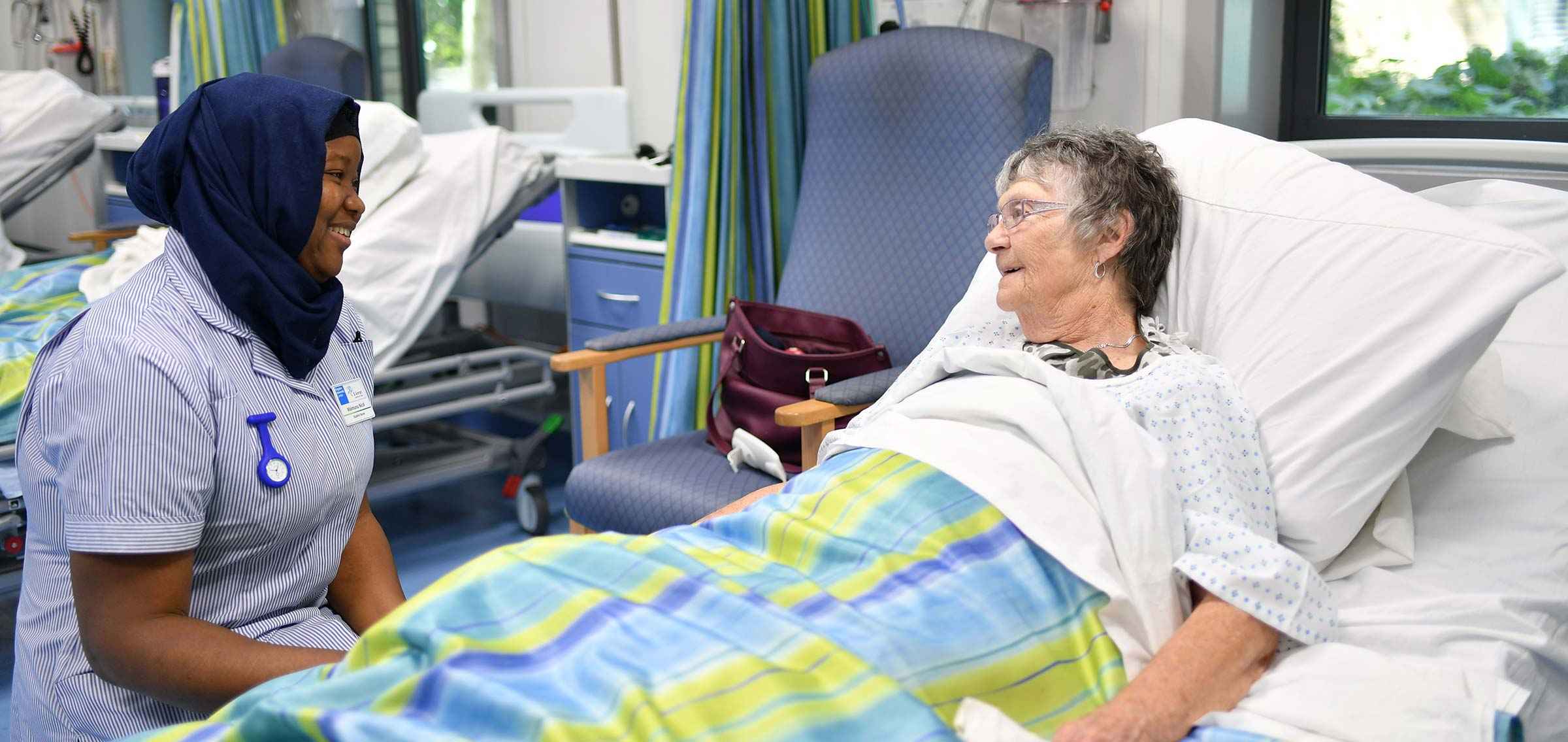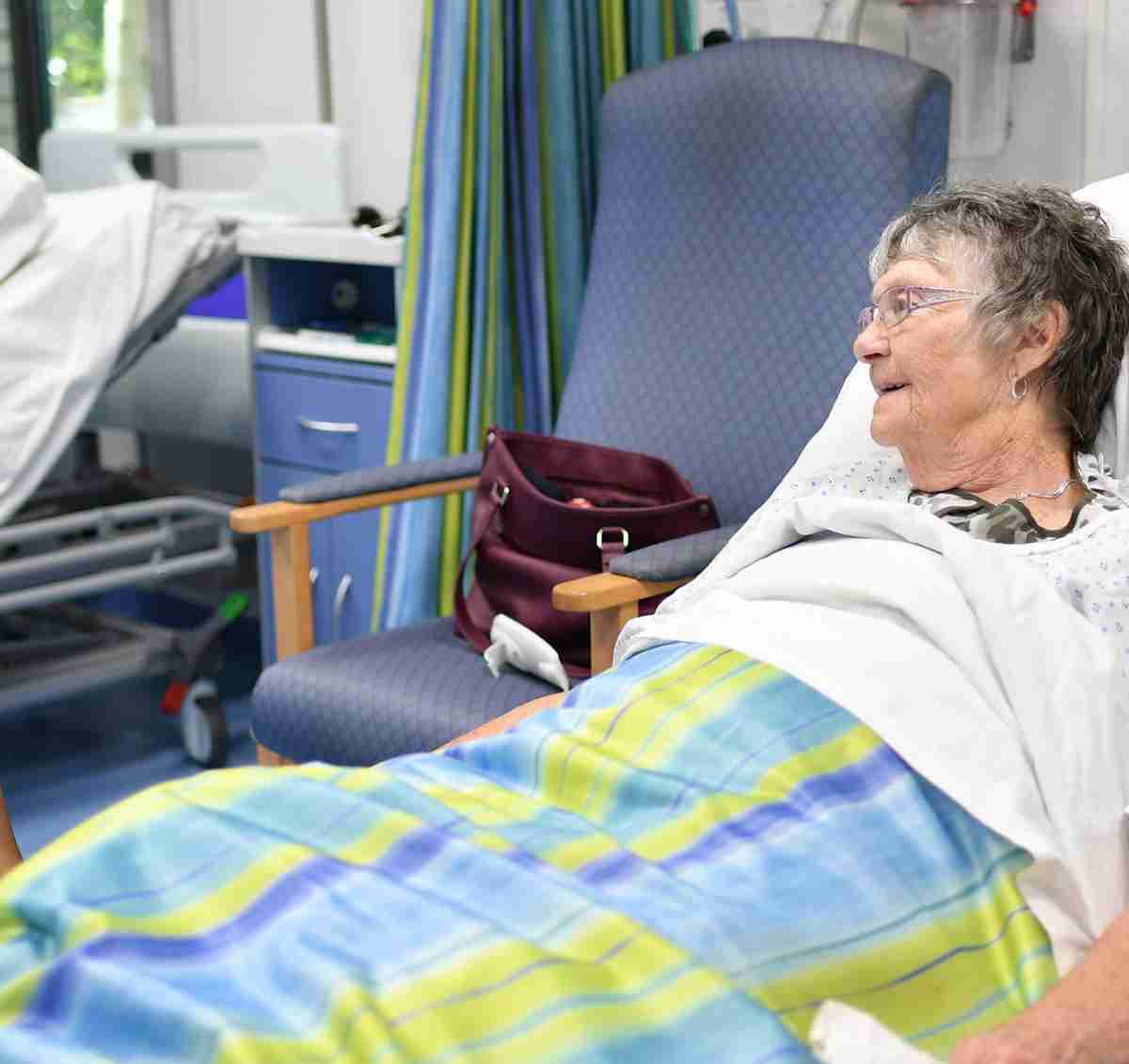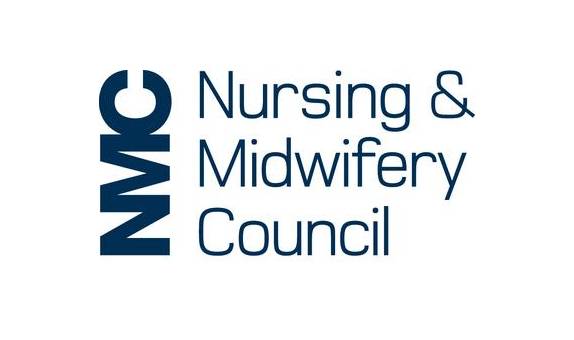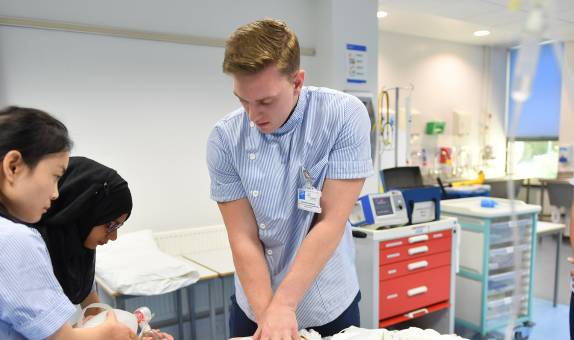Adult Nursing BSc (Hons) Integrated Degree Apprenticeship

Teaching Excellence Framework (TEF) Gold award
Our commitment to high quality teaching has been recognised with a TEF Gold rating. The University has received an overall rating of Gold, as well as securing a Gold award in the framework's two new student experience and student outcomes categories.
Why choose this programme?
Work and study at the same time with this degree apprenticeship. You'll gain the specialist knowledge and clinical skills needed to become a registered adult nurse with the Nursing and Midwifery Council (NMC).
The programme is highly practical, giving you hands-on experience. You'll have placements in hospitals, in the community and in our skills and simulation labs.
Placement opportunities will primarily be with your employer and may include medical and surgical wards, oncology, ICU, A&E, coronary care, district nursing, GP practice nursing and integrated community teams.
Our contemporary, evidence-based nursing education has been designed to meet the needs of apprentices, service users and local health and social care employers.
We are currently developing new curriculum for the September 2025 intake.
| Attendance | Year of entry |
|---|---|
| 4 years (employment-based) | 2025 |
Please note: This course has two intakes – March 2025 and September 2025
| Main Location | Kingston Hill |
Reasons to choose Kingston University
- This is a new degree apprenticeship route into Adult Nursing, so you can earn while you learn.
- We are top in London for Nursing (The Times Good University Guide 2025).
- We are in the top 10 in the UK for General Nursing (The Guardian University Guide 2025).
- Our award-winning simulation suite offers a wide range of realistic environments to learn in; these include hospital wards and community settings, with actors who play patients (Student Nursing Times Awards 2019).
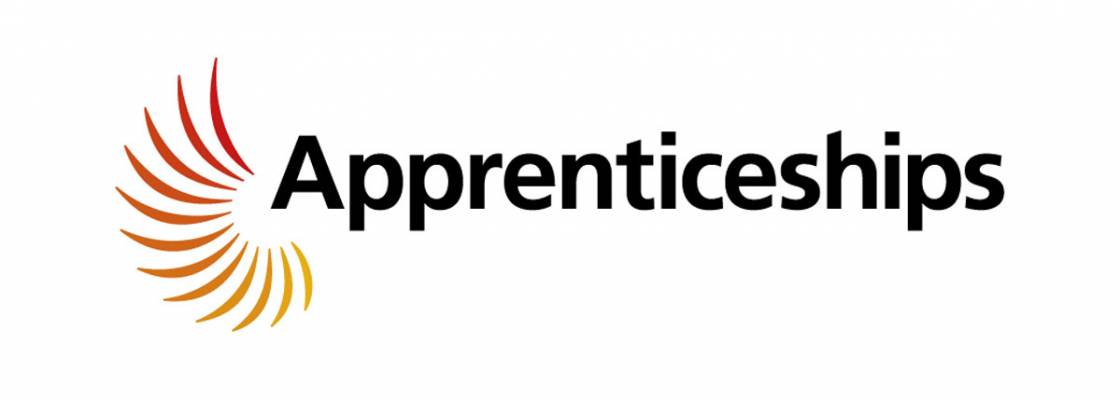
Accreditation
This degree confers both an academic award and a professional qualification in nursing. On completion of the programme, students are recommended to the Nursing and Midwifery Council for professional registration.
What you will study
Your studies will include core learning relevant to all fields of nursing, and modules specific to Adult Nursing.
Prior knowledge, skills and behaviours can exempt individuals from certain elements of the programme, resulting in different entry levels and learner journeys for the apprentices.
Foundation Degree Nursing Associates will be exempt from certain modules on the Registered Nurse Degree Apprenticeship programme resulting in entry at Level 5.
Level 4
Level 5
Level 6
In Level 4, you will be introduced to the core sciences underpinning nursing practice and the context of nursing and healthcare. This provides you with the knowledge and skills to establish and build professional relationships within all fields of nursing. You will also acquire an understanding of the factors that affect the health and well-being of individuals in a changing and diverse society.
Core modules
Applied Life Sciences for Nursing Practice
30 credits
This module is designed to help you develop your knowledge and understanding of human anatomy and physiology in relation to nursing, which is an essential element of nursing proficiency.
Pathophysiology will be explored in relation to common conditions and you will also begin to develop your knowledge of pharmacological concepts in preparation for therapeutic interventions explored in Year 2.
The main features of the module are to enable you to apply scientific principles to nursing care. It will also support you to identify and understand current nursing practices underpinned by scientific theory.
Introduction to Adult Nursing
60 credits
This module introduces you to the context of adult nursing practice across a range of healthcare settings. You will learn about contemporary healthcare concepts and a range of common health conditions. You will be introduced to The Code (NMC, 2018) to gain knowledge and understanding of its importance in guiding the nurse to deliver safe, effective and compassionate care, which is essential when caring for adults in partnership with families and other healthcare professionals. You will also develop your clinical skills and knowledge during this module.
Public Health
30 credits
This module is a core requirement for all students across all fields of the BSc/MSci Nursing programmes. As an introductory module, it will enable you to develop knowledge and understanding of the principles of public health and health promotion. You will explore the global, social-political-economic and psycho-social forces on the population's health and well-being. In addition, you will explore the evolution of public health, the determinants of health and health inequalities.
Introduction to Professional Practice
30 credits
This module will prepare students for placements and their learning in practice and the assessment process during year one of the programme. It will introduce a range of nursing procedures to enable students to provide skilled, evidence based, person centred compassionate care to people at any stage of life who may have a range of physical, mental, cognitive or behavioural health conditions.
In Level 5, you will develop your understanding of the application of person-centred care, assessment, clinical reasoning and decision-making. You will examine holistic care across the life span and focus on acute and long term care within Adult Nursing.
Core modules
Therapeutic Interventions in Nursing: Bio-Psycho-Social Approaches
30 credits
This module explores a range of therapeutic approaches in nursing. The module examines evidence-based treatment methods, current practice and nursing interventions. Students will learn about pharmacology and bio-psycho-social and alternative treatments. Field specific seminars will enable further application of module content to the students' field.
The focus of this module is to enable students to apply evidence-based principles to administering and applying therapeutic care and develop an understanding and awareness of safe and effective treatment approaches. Students will learn about partnership working with healthcare professionals, patients, service users and carers for administering treatment, as well as enabling students to identify contemporary nursing practices underpinned by therapeutic procedures.
Developing Professional Practice
30 credits
This module will further develop the skills taught and practised in the introduction to professional practice in year one. Students will be able to assess, plan and rationalise the nursing care they provide for people in health and social care and community settings. The emphasis will be on holistic person-centred care covering physical, psychological, social and cultural care. It will look at evidence based person centred care being delivered inter- and intra-disciplinary.
You will be prepared for the transition to professional practice and employability. You will develop skills in management, leadership, team working and teaching and supporting learners. You will learn how to critically appraise evidence to support future practice and explore complexities of nursing and service provision across health and social care organisations.
Collaborative Working for Health and Wellbeing in Adults with Long Term Conditions
30 credits
This module develops the students' knowledge and understanding of long term conditions and the lived experience of adults from a bio-psycho-social perspective. Students will consider the political agenda and the socio-economic issues impacting on the management of long term conditions. This will enable students to consider the role of the community care nurse in promoting self-management, shared decision-making and hospital avoidance. It will incorporate professional accountability, social inclusion, partnership and interdisciplinary working, patient involvement in the provision of care, leadership and quality assurance in nursing, all of which are essential elements of nursing proficiency.
Assessment and Care Process for the Acutely Ill Person
30 credits
This module enables students to build on anatomy, physiology and pathophysiology knowledge acquired in year one to develop the knowledge and skills necessary to assess and deliver safe and effective care when a person is acutely ill. It will equip students to recognise people who are acutely ill and at risk of deteriorating, undertake timely structured assessments, interpret clinical data and use situational judgement to escalate findings, prioritise care needs and to plan, deliver and evaluate evidence-based, person-centred care as part of the interdisciplinary team.
You will develop skills in management, leadership, team working and teaching and supporting learners. You will learn how to critically appraise evidence to support future practice and explore complexities of nursing and service provision across health and social care organisations.
Core modules
Safe and Effective Quality Care in Adult Nursing
30 credits
This module will provide the adult nursing student with the theoretical knowledge and skills required for their future role as a qualified adult nurse when contributing to risk monitoring, quality care provision and optimised service improvements.
The student will learn to manage and prioritise clinical actions, participate in clinical audit activities for quality and service improvements and learn to avoid compromising quality care using evidence-based knowledge and experience from practice.
Regulations essential for maintaining safety at work and in different care environments will be covered. Students will learn about collaborative multi professional working, whilst collectively developing effective improvement strategies. Some sessions will be shared across fields as they are core for all fields.
Co-ordinating the Care of Adults with Complex Health Care Needs
30 credits
This module will provide the adult nursing student with the underpinning knowledge and skills required for their future leadership role in coordinating and managing the complex nursing and integrated care needs of people at any stage of their lives, across a range of organisations and settings.
The student will build on their knowledge of partnership and collaborative working and complexities of physical care through resource management, finances and patient involvement, all of which are essential elements of nursing proficiency.
Leadership in Adult Nursing
30 credits
Navigating the transition from student to a professional practitioner who is skilled at leading teams is critically important to the delivery of safe, effective and high quality health care. This module is designed to prepare the student for professional nursing practice by expanding their knowledge and skills to enable them to be an accountable and compassionate leader within the health and social care system.
It focuses on leadership, team working, and performance management and enables adult nursing students to reflect on their transition to registered practice and build the evidence base for a career development portfolio. Some sessions will be shared across fields as they are core for all fields.
Advancing Professional Practice
30 credits
This module advances the skills taught and practiced in years one and two in order to prepare students for their transition to registered nurse. The module focuses on the assessment and management of patients with complex health care needs, working in partnership with other health care professionals. Students will integrate their clinical and communication skills with evidence based knowledge to become clinically proficient and confident nurses. It is a generic module where all fields of nursing learn with and from each other.
Please note
Optional modules only run if there is enough demand. If we have an insufficient number of students interested in an optional module, that module will not be offered for this course.
Entry requirements
Teaching and assessment
You will learn about adult nursing through lectures, seminars and online work in our Virtual Learning Environment (CANVAS). You will also participate in tutorials, workshops, conferences and project work. Your learning in the simulation suite will help you relate theory to practice.
The programme is offered through block release. This provides you with blocks of theory and blocks of supernumerary practice placements; skills and simulation delivered at the University are included in the total practice hours.
In each part of the programme, you will also have blocks of time in which you return to your employer; these are not part of programme hours. You will take your annual leave during your time back with your employer.
The programme is divided into three parts. Each part is approximately 15 months long and includes blocks of theory, blocks of placements and blocks of time back with your employer.
Who teaches this programme?
Our academic team of highly skilled nurses, lecturers and researchers are known for innovation in teaching and learning. Our state-of-the-art, award winning simulation suites provide you with unrivalled opportunities to develop your skills in caring for patients, service users and children through highly realistic simulations and role play. In addition, by sharing learning in some of your classes with all four fields of nursing you will widen your skills to meet the needs of all clients.
Facilities
You will be taught by the Simulated Learning and Clinical Skills Team, learning clinical skills fundamental to deliver high-quality care to patients in all fields of nursing within clinical, community and practice health settings.
You will take part in award-winning innovative simulations with role players and full body manikins that provide unprecedented opportunities to acquire, develop and maintain the knowledge, skills, values and behaviours needed for safe and effective patient care.

End-Point Assessment (EPA)
Each apprentice on an approved Apprenticeship Standard is required to take an End-Point Assessment (EPA) to complete the programme. The EPA is delivered by an End-Point Assessment Organisation (EPAO) that is registered with the Education and Skills Funding Agency (ESFA).
The EPA is either integrated as part of the apprenticeship or completed after the course element. If an apprentice is completing the EPA after the course element, they must ensure they have successfully completed their learning, achieved the gateway requirements and finished uploading their evidence prior to taking the EPA.
Local Employer Group (LEG)
The LEG was established to monitor, support and enhance the delivery and operation of the programme. This includes management and periodically reviewing of work-based learning by this established local employer group with the aim of delivering an apprenticeship programme that is a high-quality satisfactory experience for all. Representatives of apprentices are invited to serve on the group. Terms of reference include:
In advance of each group meeting, the course administrator asks the apprentice representative to gather feedback from their fellow apprentices to be channelled through them at the meeting.
After you graduate
Once you graduate, you'll be recommended to the Nursing and Midwifery Council (NMC) for professional registration and can continue to develop your career with your employer.

Next steps
Employees
If you are currently employed full time and would like to find out more about apprenticeships, please ask your employer to contact the Kingston University apprenticeship team.
Employers
If you are an employer interested in how apprenticeships can support your organisation and employees, please contact the apprenticeship team for further details.
Course changes and regulations
The information on this page reflects the currently intended course structure and module details. To improve your student experience and the quality of your degree, we may review and change the material information of this course. Course changes explained.
Programme Specifications for the course are published ahead of each academic year.
Regulations governing this course can be found on our website.
